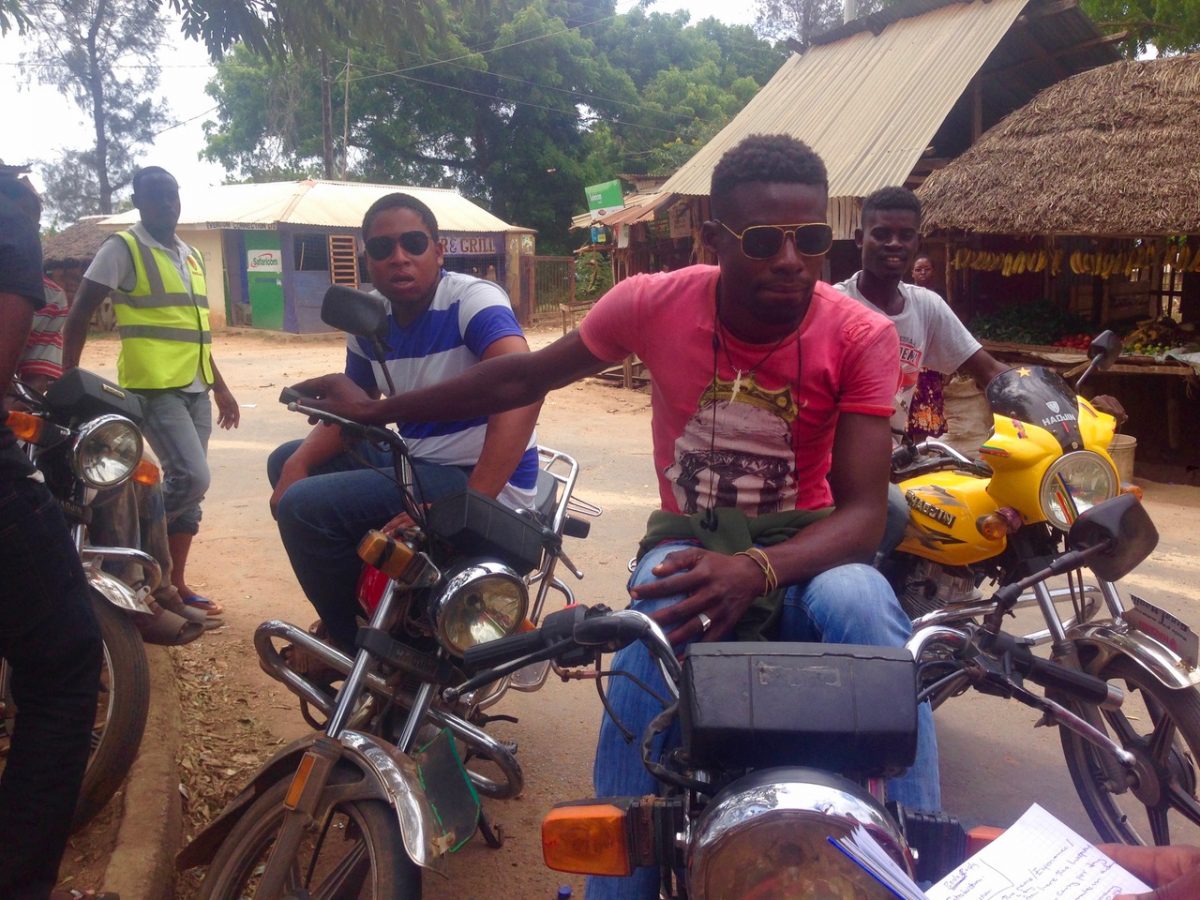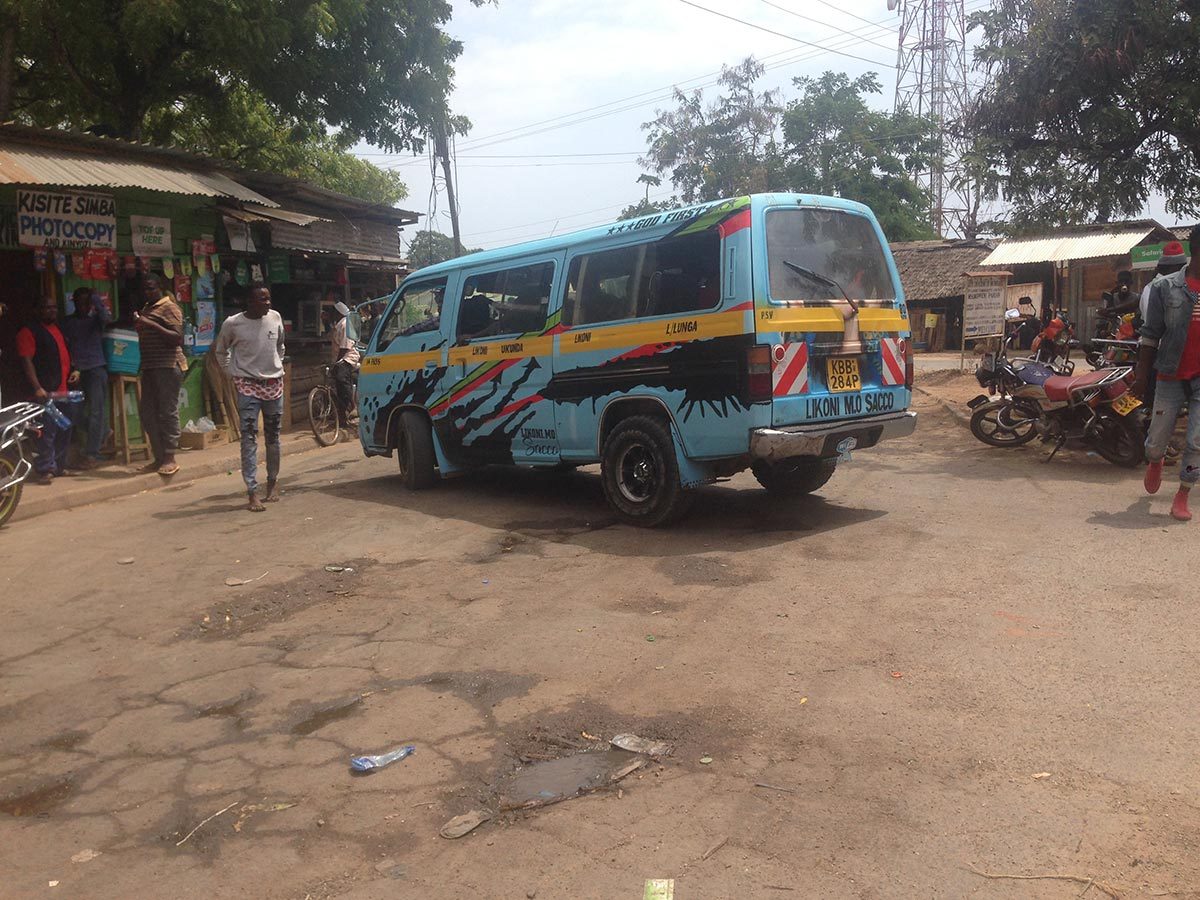Transportation in Msambweni
The boda boda drivers normally rest in shadow under this big tree waiting for their customers. The passengers board and alight at the road junction. In Msambweni there is a District Hospital which is the biggest hospital in Kwale County. It’s a very busy place. There are shops nearby where travelers can buy what they urgently need.

A Boda boda rider named Seneta (in the red t-shirt) is an experienced motorbike rider. The Nice View Reporters did an interview with him.
Reporter: What is your name?
Rider: My name is Seneta (He did not want to disclose his real name).
Reporter: For how long have you been working as a Boda boda rider?
Rider: I have been doing this job for 2 years now.
Reporter: How many trips do you make approximately in a day to the junction and how much does it cost?
Rider: I make approximately 20 trips in a day and since it costs shs.50 per passenger, I make shs.1000.
Reporter: Are you self employed or who are you working for?
Rider: I am employed and I give back shs.350 to the owner of the motorbike everyday.
Reporter: Do you have a helmet and the reflectors for yourself and your passengers?
Rider: Yes I have, but its too hot to carry them with me (Laughs as he answers the question).
Reporter: What are the challenges you face as a Boda boda rider?
Rider: We get some customers who are sometimes dangerous at night and they end up harming us and steal the motorbikes. Sometimes we involve ourselves in accidents.
Reporter: What are the benefits?
Rider: Sometimes when it’s our lucky day we earn shs. 2500-3000 a day.
Reporter: Are you allowed by the government to carry more than two people?
Rider: I don’t, since the law states that we should not carry more than two passengers.
Reporter: Is there any order of sequence in your duty as Boda boda riders?
Rider: We don’t have a sequence. We believe in a saying that goes “The earliest bird catches the worm”.
Reporter: Thank you for your time and have a lovely day.
Rider: You are welcome.

Since the 1960s the matatus are transporting people around Kenya. Today there are more than 20,000 matatus on the road.

Reporter: Good morning. What is your name?
Conductor: I am called Ali.
Reporter: When did you start your career?
Conductor: I start this job in the year 1993 when I was still a youth.
Reporter: Why do you like this job?
Conductor: This job has no stress.
Reporter: At what time do you wake up to start your job?
Conductor: I wake up at 5 a.m to start my job.
Reporter: How much does it cost from Msambweni hospital to the junction per passenger?
Conductor: It costs shs.30 per passenger.
Reporter: How many passengers do you carry per trip?
Conductor: We transport 14 passengers per trip.
Reporter: How many hours do you work per day?
Conductors: We work for 13 hours per day.
Reporter: How much do you pay to the owner of the matatu?
Conductor: I give back to the owner shs. 3000 per day.
Reporter: Do you still follow the rules that were introduced by the Government (Matiangi’s rule)
Conductor: Yes I do.
Reporter: Thank you for allowing us to question you. God bless you.
Conductor: Welcome and be blessed too.

The first day Nice View Reporters gathering information on road transport.

